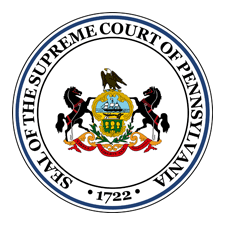The firm was co-lead counsel. This case was brought about in May of 2006 against Yahoo! on behalf of pay-per-click search advertising customers who claim Yahoo! breached its contract by allowing Yahoo! ads to be displayed in spyware, domain name parking sites (also known as bulk registration sites), pop-ups, pop-unders, and typosquatting sites. After participating in four mediation sessions the parties finally reached a settlement of this class action, documentation found below:
Category Archives: Consumer Litigation
In The News
Gillis v. Respond Power, LLC
Gillis v. Respond Power, LLC
This case arises from a deceptive scheme perpetrated by Defendant Respond Power LLC. Respond is an Electric Generation Supplier (EGS) in Pennsylvania that uniformly mis-portrays the contractual rates it can and will charge to consumers by omitting material facts and deceiving reasonable consumers as to the actual risks, costs, charges, and savings a reasonable consumer will realize (and should reasonably expect to realize) after switching from his or her local regulated electric utility to Respond.
These omissions led to consumer’s to believe they were protected from any future rate increases being greater than what they were being charged by their current utility, when in fact Respond would end up charging consumer’s up to 3x their previous regulated electric utility rate.
Respond ended up having their Motion to Dismiss Granted by the District Court but the case was then appealed to the Third Circuit. After briefing/argument was complete the Third Circuit released their opinion concluding that the District Court did not properly exercise its discretion in denying class certification. Therefore the Third Circuit vacated the District Courts order denying class certification and remand for further proceedings.
In The News
Danganan v. Guardian Protection Services
Danganan v. Guardian Protection Services
Plaintiff Jobe Danganan hired Guardian Protection Services to provide home security for his residence in Washington D.C. In the middle of his contract with Guardian Mr. Danganan had to move to California for work and notified Guardian that he wanted to terminate his services with them. Guardian refused to terminate his contract and continued to charge Mr. Danganan for services he never received, Mr. Danganan filed suit.
As a result of his contract having a choice of law clause and Guardian being HQ’d in PA as such Pennsylvania law was used to file suit. While the UTPCPL prohibits unfair trade practices for Pennsylvania residents, Guardian claimed that since Mr. Danganan’s service was provided for in Washington D.C. and now lived in California, he was unable to sue them under the UTPCPL.
Pennsylvania Supreme Court:
After appealing to the Pennsylvania Supreme Court, Guardian was informed on February 21, 2018, by a unanimous decision written by Chief Justice Saylor, that the UTPCPL has “no geographical limitation or residency requirement” in the UTPCPL’s text. Further quoting the PA Supreme Court’s Opinion “Accordingly, in response to the first certified question, we hold that a non-Pennsylvania resident may bring suit under the UTPCPL against a Commonwealth headquartered business based on transactions that occurred out-of-state. We further conclude that our answer to the first issue eliminates the predicate to the second question certified for review. The matter is returned to the Third Circuit Court of Appeals.”
Third Circuit Court of Appeals:
The Third Circuit Court of Appeals decided on August 6, 2018 to agree with the conclusions made by the Pennsylvania Supreme Court, reversing the decision of the District Court and remanding the case for further proceedings. To quote, “Because that court concluded, contrary to the District Court, that the UTPCPL may provide a cause of action to non-residents in circumstances like those alleged by Danganan, we will reverse the decision of the District Court dismissing his complaint and remand for further proceedings consistent with this opinion and the decision of the Supreme Court of Pennsylvania.”
Case Documents:
Pennsylvania Supreme Court Opinion February 22, 2018
Third Circuit Court of Appeals Opinion August 6, 2018
In The News
Little v. Kia Motors America, Inc.
No. UNN-L-800-01 (Law Division Aug. 20, 2003)
The Firm is co-lead counsel in this New Jersey class action against KIA. Similar to the Samuel-Basset case in Pennsylvania. On August 20, 2003, the New Jersey Superior Court certified a class of New Jersey consumers to pursue breach of warranty and Consumer Fraud Act claims arising from the allegedly defective braking system.
Case Summary: On February 16, 2001 owners of 1997-2000Â KIA Sephia’s brought suit against KIA Motors in the Superior Court of New Jersey, due to a defective front brake system which resulted in:
- Brake pads and rotors to excessively wear out
- Noise issues such as squeals and groans
- Constant repairs and replacements
            The Court certified a Class and the lawsuit went to trial beginning in May 2008. On June 6, 2008 the jury issued a verdict in favor of the Class. The jury decided the front braking system was defective, that Kia did not take steps to fix the defect, and that Kia did not satisfy the warranty. The jury further decided that each Class Member suffered $750 in losses.
            On November 24, 2008 the Court decided Class Members should receive payments related to their individual front brake repairs. The Court later ordered that Class Members who want to receive a payment must submit a Claim Form.  Please use the documents below for submitting your claim.  We have also provided documents from both the case proceedings and the jury trial.
            On July 18, 2018 after successfully appealing the decisions of the lower courts, the Superior Court of New Jersey’s Appellate division issued an Opinion vindicating all of the Plaintiff attorneys work and solidifying the jury verdict from 10 years ago.
To quote the Courts Opinion:
   “Finally, defendant contends that the court should have decertified the class during the claim-form proceeding because repairs were unique to each member and the majority of the class members did not fit the claim-form criteria. This argument lacks merit because the claim-form proceeding should not have occurred. Further, failing to return a claim form does not prove that the class member incurred no damage. The court correctly certified the class. The cross-appeal is without merit.
We reverse the trial judge’s grant of a JNOV and remand for a determination of counsel fees consistent with this opinion. We do not retain jurisdiction.”
Court Opinions
- NJ Appellate Court Opinion July 18, 2018
Claim Form and Documents
- KIA (NJ) Letter Mailed with Notice
KIA (NJ) Letter Mailed with Notice - KIA (NJ) Name Specific Claim Form
KIA (NJ) Name Specific Claim Form - KIA (NJ) Claim Form
KIA (NJ) Claim Form - KIA (NJ) Notice
KIA (NJ) Notice - Notice to Class :Â KIA – Little February 9, 2004
- KIA (NJ) – BRE Envelope
KIA (NJ) – BRE Envelope
Trial Documents
- KIA (NJ) Jury Verdict
KIA (NJ) Jury Verdict. - KIA (NJ) Order Denying Post-Trial Motions November 24, 2008
Order Denying Post-Trial Motions - KIA (NJ) Final Exhibit List from Trial
KIA (NJ) Final Exhibit List - KIA (NJ) Post-Trial Decision November 26, 2008
KIA (NJ) Post-Trial Decision - KIA (NJ) – Scott King’s Expert Report
KIA (NJ) Expert Report of Scott King
In The News
Samuel-Bassett v. Kia Motors America, Inc
212 F.R.D. 271 (E.D. Pa. 2002)
The Firm is co-counsel in this class action involving 10,000 Pennsylvania consumers against Kia Motors America, Inc. The class claims arise from a systematic defective brake system in Kia Sephia automobiles, model years 1995-2001.
Court Orders & Opinions:
Memorandum and Order Approving Class Certification September 17, 2004
Judge Bernstein’s Post Trial Opinion December 29, 2006
Pennsylvania Superior Court Opinion October 24, 2007
Judge Bernstein’s Opinion and Findings of Facts November 14, 2007
Pennsylvania Supreme Court Opinion December 2, 2011
Notice to Class :Â Notice to Class Members in Bassett v. KIA
In The News
Newton v. United Companies Financial Corp.
24 F. Supp. 2d 444 (E.D. Pa. 1998)
The Firm co-counseled this five day bench trial on behalf of four low-income plaintiffs against a sub-prime home equity lender for violations of the Home Ownership and Equity Protection Act and the Equal Credit Opportunity Act. Plaintiffs prevailed on virtually all their claims, achieving rescission of the mortgages and awards of money damages.
In The News
Braun v. Wal-Mart Stores, Inc.
2003 WL 1847695 (Pa. Com. Pl. January 15, 2003)
The Firm is co-counsel to the plaintiff and class in this action to recover unpaid wages earned by Wal-Mart employees for overtime work and missed or shortened meal and break periods. Plaintiff has obtained a court ruling prohibiting Wal-Mart from conducting ex parte interviews with current and former employees who are class members. Discovery is currently proceeding. On December 27, 2005, the Court certified a class consisting of all current and former Wal-Mart employees in Pennsylvania from 1998 through the present.  Trial is scheduled for September 5, 2006 in the Philadelphia Court of Common Pleas.  To view the Notice of Pendency of Class Action and other pertinent materials, please click on the links below.
Complaint:Â Braun v. Walmart
Briefs:
Pennsylvania Supreme Court: Brief of Appellees March 22, 2013
United States Supreme Court:  Brief in Opposition April 20, 2015
Court Orders & Opinions:
Court of Common Pleas – Order Approving Class Certification December 27, 2005
Judge Bernstein’s Opinion on Damages October 3, 2007
Judge Bernstein’s Order, Opinion and Findings of Fact November 14, 2007
Pennsylvania Superior Court Opinion June 10, 2011
Pennsylvania Supreme Court Opinion December 15, 2014
United States Supreme Court Denies Wal-Mart’s Petition for a Writ of Certiorari April 4, 2016
Notice to Class:Â Notice to Class
In The News
Colbert v. Dymacol, Inc.
305 F.3d 1256 (3d Cir. 2002)(appeal vacated and dismissed, March 10, 2003)
The Firm co-counseled this class action involving over 186,000 Pennsylvania consumers under the Fair Debt Collection Practices Act. The case involved cutting edge issues involving the intersection of Rule 68 offer of judgments and Rule 23 class actions. The case was argued twice before the Court of Appeals for the Third Circuit, once before a panel of three judges and subsequently on rehearing en banc before all thirteen judges of the Court. Following a successful remand of the case to the district court, plaintiff eventually reached a settlement that resulted in a payment to the class members in the maximum amount they would have won had the case gone to trial.
In The News
Samuel v. Equicredit Corp
The Firm served as co-counsel to the plaintiff and a class of twelve thousand Pennsylvania residential homeowners who were victimized by practices and policies of a sub-prime home equity lender. Following vigorous litigation, the case settled in consideration of a $2,500,000 payment to the class, as well as substantial relief for class members whose homes were in the midst of foreclosure as a result of the defendant’s actions.
In The News
Erie Insurance Litigation
This was a consumer class action in which the consumer alleged that Erie collected premiums for the time period before life insurance coverage went into effect. In particular, the action alleged that the insurance policy did not take effect until it was delivered to the insured, but that Erie received premium payments from consumers covering days or weeks before policy delivery, when no insurance was in effect. The action settled in 2005, with consumers receiving either a cash payment or extended and increased death benefits.







 Michael D. Donovan Selected to Pennsylvania Super Lawyers 2004-2025
Michael D. Donovan Selected to Pennsylvania Super Lawyers 2004-2025